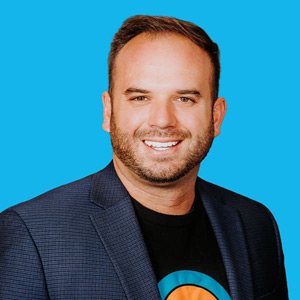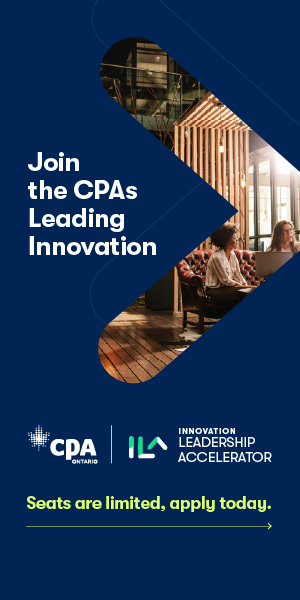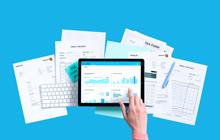Accounting has changed: Why tech-first CPAs will succeed

For both new and veteran accountants, there are plenty of resources available that make it easy to learn about new digital accounting applications and tools
 |
Ben Richmond is Managing Director, North America at Xero. |
ALL OVER the world and in every industry, technology has made an incredible impact — and the accounting profession is no exception. In 2024, finding an accounting practice that doesn’t leverage digital tools is becoming increasingly rare — 85% of Canadian practices surveyed in a recent report from Xero, Leveraging the app advantage, are now using applications for tasks like record-keeping, billing and payments, and inventory management — and it’s easy to understand why. Tasks and processes that used to take the longest have now been made some of the quickest as a result of automation and the proliferation of digital accounting and bookkeeping tools.
However, for accountants to ensure there is continued progress made on this front, they cannot become complacent when it comes to technological adoption. As new technologies emerge and accounting software evolves, the modern accountant must evolve alongside them.
Thanks to the fintech sector rolling out new financial applications on a regular basis, the role of the CPA has gradually shifted from focusing solely on numbers and spreadsheets to something more closely resembling a strategic advisor. Not only are more clients now relying on their accountants for strategic insights, they’re also relying on them for support with digital tools and automation. Half of Canadian practice owners now offer advisory services as a billable service and 71% report that clients now rely on them to recommend accounting apps that suit their needs. With that in mind, it’s clear that CPAs with a mindset of early adoption will be well-positioned to thrive in an increasingly digital-first sector —and those without might be in for a rude awakening.
This responsibility shouldn’t fall only on the individual accountant, though. The organizations that hire accountants, and the universities educating them, should be instilling the benefits of technology at the onset.
Nowadays, it’s common for junior accountants to go through somewhat of a culture shock when they see just how many software tools companies are using that they have no prior knowledge of. Though clearly counterintuitive, many professors continue to prioritize textbook learning over tangible, real-world applications, especially when it comes to technology.
Luckily, for accountants entering the profession today — and industry veterans who are looking to level up — there are plenty of resources available that make it easy to learn about new digital applications and tools. For example, Xero provides a free online certification course for new users, which gives accountants and bookkeepers the knowledge and skills to use the platform effectively.
That said, while these types of certifications are incredibly valuable to CPAs and practice owners, they shouldn’t be a replacement for app education at the post-secondary level. As we prepare the next wave of accounting professionals to enter the workplace, universities should be considering the opportunity to offer a more holistic, tech-forward education that will prepare their students for the realities of the profession in 2024.
Within organizations, there's also a clear incentive to ensure their staff are up-to-date with the latest applications. Prioritizing digital literacy and expertise with accounting apps not only benefits the practice in the long run, but the majority of practices with more established and integrated app stacks also tend to see higher returns. According to Xero’s reporting, 66% of practices that use apps for multiple services report an increase in profit per the past 12 months and nearly 80% of respondents who offered app advisory services noted an increase in revenue over the past 12 months.
An emphasis on upskilling and embracing the latest tech also positions the firm as an employer of choice, which is invaluable in the incredibly competitive accountant talent market we’re experiencing. However, in order for businesses to foster a culture of technological adoption, senior management must lead by example.
Leadership teams need to make a point of being the first to know about new, critical software solutions for their clients and teams. The question then becomes: Are they equipped to implement the new software? The rise of cloud technology in particular has posed a challenge for some businesses that had already fallen behind on digital adoption, something that we know Canadian practices across the board have historically struggled with. Firms that take the steps to embrace technological adoption and innovation with a top-down approach will be better positioned to entice potential candidates.
While it’s true that the responsibility for the accounting profession’s success lies within our institutions, individuals can help themselves out by developing the skills accounting firms and potential clients find to be the most important. Below is a suggested framework for CPAs and CPA hopefuls keen to upgrade their skill set to meet the needs of a digital-first client base:
- As a baseline, accountants need to ensure their hard tech skills are up to par. This means keeping up with trends, learning new programs, and adopting new skills in their downtime. Ideally, your employer can accommodate your learning and development needs but, if not, it’s still worth your time developing these skills on your own. Not only can you then help bring these new tools into your organization, but they also undoubtedly strengthen your resume as an accountant.
- While embracing digital literacy is important, accountants should also concentrate on strengthening soft skills. Change management skills, and the ability to navigate large-scale transitions to new systems, or new environments are incredibly valuable in the rapidly evolving landscape. Honing the ability to adapt can also play a significant role in career progression within your organization, as being able to guide fellow accounting team members through change is often seen as a major consideration when vying for senior leadership roles.
- Finally, accountants who are interested in fostering a mindset of early adoption should lead with strategy. Historically, accountants have had an arms-length relationship with their clients, mostly hosting meetings at tax and reporting season. Modern accounting professionals should take time to nurture their client relationships, strategically developing them into an advisory-based and collaborative business partnership.
As digital adoption and new technology continue to transform the accounting industry, CPAs should see the transition as an opportunity to evolve their practices and strengthen their expertise to better serve clients.
The industry is changing and while there isn't yet a perfect system in place to train and upskill with new technologies, it's clear that those who embrace a tech-first mindset are more likely to succeed in the modern age of accounting.
Ben Richmond is Managing Director, North America at Xero. He is responsible for driving Xero’s growth in the United States and Canada. In 2013, he joined Xero as New Zealand sales director where he led the business' national growth and spearheaded Xero's global agriculture strategy. Prior to joining Xero, Ben worked in a large regional accounting practice before joining New Zealand's largest telecommunications company in a senior accounting role. He was also one of the founding board members of the Spark Foundation. Ben is a chartered accountant and earned a Bachelor of Commerce majoring in accounting, finance and information systems from the University of Canterbury.
Title image: "Woman and man sitting in front of monitor," Desola Lanre-Ologun on Unsplash. Author photo courtesy Xero. Advertising feature produced by Xero.










(0) Comments